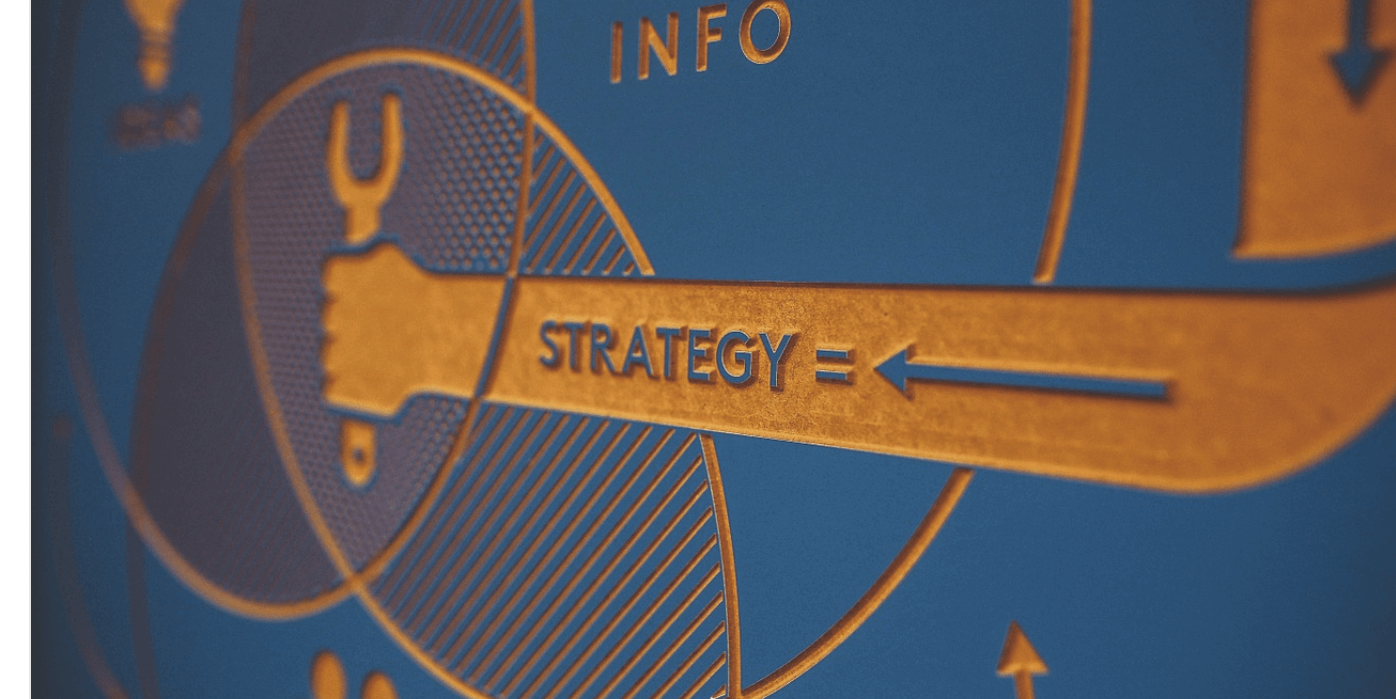
How to Decide Between In-House Marketing Optimization or an Conversion Agency
Overcome the challenging decision of whether to build a CRO team in-house or leave it to an outside firm with this key checklist.
Conversion rate optimization is an essential part of ecommerce – that’s a given. But, should you use in-house marketing talent or hire a conversion agency?
That’s a tough question. It can be difficult to calculate which makes more business sense.
At The Good, part of our job is to help companies make that all-important decision. You might think we always vote for “Hire an agency.” But that’s not the case. There are times when relying on in-house resources makes sense.
It’s always a good idea to have a competent conversion optimization partner in your corner, but they don’t always have to take the lead.
In this article, we’ll cover three criteria we use to help prospects decide whether to go with an in-house marketing team for conversion optimization work or to contract the work out. The question hinges on the relationship between these two factors: cost and results.
In-house vs agency – which is best for your company?
Let’s talk about that.

Ecommerce Managers are Under the Gun Like Never Before
Marketing executives are increasingly on the hook to demonstrate ROI for their efforts. The Gartner CMO Spend Survey for 2017-2018 warned that all indicators point to one clear factor: “For CMOs and marketing leaders, it’s show time.”
That means the VP of Ecommerce and every marketing manager must carefully delegate resources and invest in the campaigns and programs that will help them meet sales goals while keeping within the limitations of the marketing budget. For many companies, that means a rebalance of the in-house vs agency mix.
The starting point to the question, when we speak with a new prospect or client, is to assess current capabilities. Conversion optimization is built on a learning strategy that requires certain abilities and tools. If those are already in place, score one for in-house. If not, start counting the cost.
Starting from scratch in-house means investing in the tools, training, and process, then waiting for data collection and interpretation. It can be months before you see results, and the up-front cost can be prohibitive. If you already have much of the human and machine resources in place, though, the cost could be well worth the investment.
Begin by considering your present abilities:
- How much does your team know about conversion optimization?
- Are your current conversion rates spectacular or sour?
- Have conversion rates been steadily ticking upwards?
We find many cases where there aren’t firm answers to those questions at all. Ecommerce data collection can be a confusing pursuit, making it feel like nobody is really at the wheel. A sound conversion optimization strategy can fix that.
Once you have a realistic appraisal of current abilities, consider the three criteria listed below. They will quickly lead you to the correct decision for you and your company.
It’s time to assume accountability for business performance and show that marketing can grow the business while making hard choices @GartnerDigital Click To Tweet3 Criteria to Help You Decide Between In-House Marketing and Hiring a Conversion Agency
Smart marketing managers always keep an eye on the money. That pleases the CFO and helps ease tension on the team. Conversion rate optimization, correctly implemented, helps you do more with less.
How would it feel to deliver more ROI with less budget? That’s the goal of CRO.
Here are the three criteria we use to inform the choice between in-house optimization and bringing in outside help.
1. Do you have sufficient expertise to support your CRO needs?
Qualified and experienced oversight is a must. Otherwise, you can waste time and money on a CRO goose chase.
You’ve already assessed your in-house resources. Do you currently have someone on staff capable of leading the CRO charge? Are there others with CRO experience who can back that person up and help spearhead the effort?
If the necessary talent isn’t already on board, you’ll need to hire help – one way or the other. Whether you end up bringing on more personnel or turning to an agency, be super-careful in the hiring process.
Individuals and agencies often list CRO as part of a long list of specialties.
That can spell trouble.
Look for solid, hands-on CRO work. You want proven success at identifying stuck spots in the path to sales, testing to identify problems, and providing solutions to free up those friction zones and open the sales pipeline.
Many “CRO specialists” can’t prove their abilities with tracked results. Save hiring someone who has education – but no experience – for your internships. You can’t rely on theory when you’re building your CRO team.
Another thing to look out for is the control factor. Here again, whether you go with your in-house marketing department or hire a CRO consultancy, you’ll want to stay on top of the progress and receive regular reports.
Be wary of anyone who can’t explain what they’re doing, why they’re doing it, and how it can be expected to affect the sales path.
Don’t settle for an undecipherable data sheet that looks like a mashup of statistics and calculus. Require plain language and data directly tied to your key performance indicators. Here at The Good, we keep clients informed at every stage of the testing development process, then walk them through the results and what that data means to the next stage.
You should expect no less.
You can handpick your employees and train them in the specifics of your business. However, if you don’t have a team of CRO experts on hand, a bootcamp isn’t enough. Once you do have a team together, you’ll need to invest in ongoing training.
We’re often called in when an employee who’s been groomed for CRO decides to leave the company. All of that investment and time goes out the door too.

2. How do in-house marketing costs compare to agency costs?
Typically, you can hire a team of experts through a CRO firm for less than the cumulative costs of hiring one senior level staff member – though the initial pull on the budget could be more. Much of that will depend on how you handle the associated expenses of each in your accounting process.
With in-house marketing help, you are paying for salary, benefits, office space, bonuses, professional development, and more. When you hire a CRO firm, you’ll normally get one bill for the entire range of services. You also won’t have to worry about losing your investment when someone decides to leave your company and go elsewhere.
A CRO firm is normally the best option for businesses with sufficient traffic and budget – especially if there is a desire to get results as quickly as possible.
That leads us to a primary question: Which option can get the results you seek faster and with less expense? Is it in-house marketing staff or a bonafide CRO specialist?

3. Consider the tools required and your current access to them
It’s easy to collect more tools than you need. Worse yet, it’s typical for a company to pay more than they ought for tools they don’t need in the first place.
It’s critical that you choose the right tools, and it’s icing on the cake if you can get those tools at a reasonable price. This is an area where an experienced CRO firm or consultant can save the day. Without a solid CRO background, you’re totally at the mercy of whatever the salesperson recommends.
Tool selection begins with your needs. If you’re creating an in-house marketing team for CRO, start with the basics. Make sure the tools and team are paying for themselves before adding on more tools and more expense.
Here’s something to look out for should you decide to outsource your CRO: “sticky tools.” Some firms include the cost of the tools in their pricing. That can lock you into a relationship with them. If you cancel, your data disappears with your contract. Make sure you consider that before signing an agreement.
At The Good, we recommend a direct client/vendor relationship for key tools. We help you select the best tools for your situation. We’ll also step in to help you get the best price for those tools, whenever we can. That gives you more control over your CRO destiny and separates the cost of tools from the cost of consulting (which may provide greater tax benefit).
In-House Marketing or CRO Partner – Ask the Right Questions
Every successful ecommerce venture places special emphasis on conversion rate optimization. The math is simple: more conversions = more sales.
Underlying that equation, though, are crucial questions:
- How does my conversion rate compare to others in my niche? Is that comparison even helpful?
- Where are the blockages keeping me from getting even more sales?
- What is my cart abandonment rate, and is it reasonable?
- Who are my best customers and how can I serve them better?
- Would investing increasing ad spend to get more traffic be wise right now?
I could go on, but you get the picture. One of the most important things a conversion rate optimization firm can do is help you create the best questions for your business.
Here’s an equally important consideration. In-house teams tend to get color blind. They can’t see everything they need to see. Or, as I like to say, it becomes hard to read the label from inside the jar. A CRO consultant can provide perspective you can’t get from the inside looking out.
A unbiased look at the reality of the situation can shine a light on barriers presently hidden from view.
You may not need to hire outside help forever, but don’t let that stop you from getting the help you need now. Let’s talk about it. Schedule a complimentary landing page assessment, and learn more about how The Good can convert more of your existing site traffic into buyers.

About the Author
Jon MacDonald
Jon MacDonald is founder and President of The Good, a conversion rate optimization firm that has achieved results for some of the largest online brands including Adobe, Nike, Xerox, Verizon, Intel and more. Jon regularly contributes content on conversion optimization to publications like Entrepreneur and Inc. He knows how to get visitors to take action.